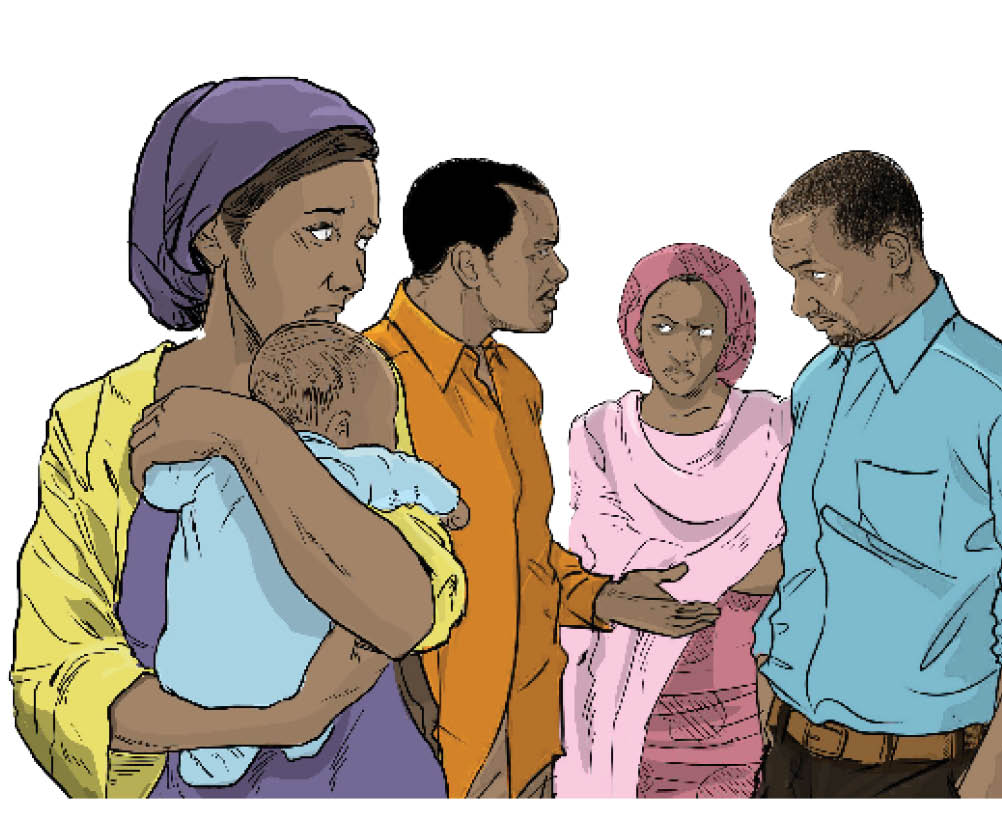In Africa, it is believed that you don’t marry your spouse alone. You also marry their family members. But not all of the family members would like you or your spouse. So, how would you protect your spouse from your family’s toxicity?
A lot of family members do not share the bond you have with your spouse. So, they might not understand why you do some of the things you do for your spouse. And that could cause your spouse to look bad in their eyes. Some family members are just plain mean and determined to frustrate your spouse. LifeXtra takes a look at varying views about the issue.
Comfort Ugochukwu, 32-year-old banker who lives in Port Harcourt, said she has to be blunt in a bid to protect her husband from the toxicity of her family. “Before I got married, I always thought only the man’s family could be toxic. I was really wrong because my family members turned out to be toxic. They were toxic verbally not physically anyway. My sister stayed with my husband and me when I gave birth to my son. And I noticed that she would always look for ways to rile my husband. She would call my mother and report him to her. Then trouble would start. It was really stressful for me because my husband tried his best to help me when we had our baby. But my sister and my mum didn’t think that was normal and they saw him as weak. So, they thought they could talk to him anyhow.
“I didn’t let that happen, of course. I sent my sister packing and gave a stern warning to my mum and sister. If they ever want to come to my house, then they should learn to mind their business and respect my husband. You rarely find good men who would help you with chores. So, I wasn’t going to let my family ruin that for me. That was how I protected my husband from my family’s toxicity. This goes both ways; any family member can choose to disrespect your spouse. It isn’t limited to the man’s family.”
Dayo Tiamiyu, 39, who resides in Lagos, said he shielded his wife from his family’s toxicity diplomatically. He said, “This happened to me when I just got married and my wife was the recipient. As a Yoruba man, I was thought to respect my parents. So, that made my situation very delicate. My mother was the one who abused my wife mentally and emotionally. We agreed to wait for about two years before having children because we wanted to enjoy our marriage before kids came into the mix. But my mum didn’t understand that. She started harassing my wife after a year, and this affected her work productivity. She would cry all the time. I talked to my mother and she still didn’t back down. So, I called a family meeting and reported her to the others. At this point, I was really angry because there was nothing with my wife and I. We just wanted to wait. I previously talked to my dad in private and told him I wanted her to stop coming to my house for a period of time and for her to leave my wife alone.
“During the family meeting, my dad ordered her to do all what I asked him in private without him telling her those were my conditions. So, I literally got my dad to do my dirty work because I didn’t want to disrespect her. She realized her error and apologized to my wife and I. That is how I handled that situation and my wife and I have two beautiful children today. There are diplomatic ways we can shield our partners from family abuse. It doesn’t always have to involve violence or physical altercation.”
Ifeoma Adebayo, 32-year-old civil servant, said she would forever love her husband because of how he defended her. “I will always say it. My husband is the man. We had problems because of our different tribes and his family members didn’t like me except his dad. One particular incident changed everything. His brothers said they wanted to stay with us after we got married and my husband said no. His mum and brothers came to the house to fight with me because they thought I didn’t want his brothers to stay with us. They thought I was the one influencing his decisions but I wasn’t because my husband has a mind of his own. He is open-minded and disciplined. He scolded his mum and brothers when they came to the house. It wasn’t a small matter o. “They came prepared to fight. My husband told them that they would never get his support financially if they didn’t leave our house immediately. He is the breadwinner of both his nuclear and extended family. So, saying that really sobered them and they changed towards me since that day.”

 Join Daily Trust WhatsApp Community For Quick Access To News and Happenings Around You.
Join Daily Trust WhatsApp Community For Quick Access To News and Happenings Around You.


